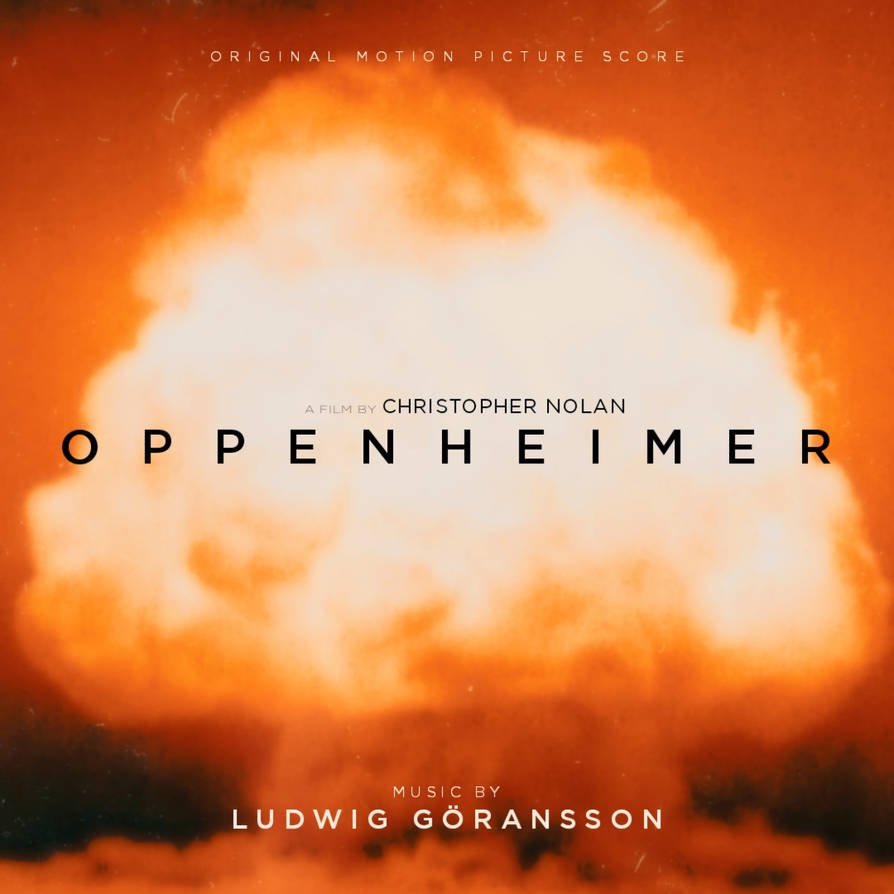Oppenheimer Soundtrack - A Review
So, Christopher Nolan has released another gigantic, epic tentpole of cinema and, as usual, it excites not only the cinemaphiles but also the music nerds, because inevitably a new avant-garde soundtrack is on the cards. Ludwig Goransson returns for his second stint in a Nolan movie with a exquisite, frenetic and moving soundtrack that elevates an already extraordinary film to stratospheric heights. It’s a great listen, but not for the faint of heart. Be prepared for sinister, hair-raising build-ups, abrupt tempo changes and some truly unnerving string work.
We’ve all heard intense violin work before, but there’s something especially unsettling about the way the violins scream and wail their way between notes here. Probably the best example is the cue Trinity, which has one of the most unbearably tense string parts in recent memory. Even Hans Zimmer’s famous razor blade approach somehow doesn’t quite match the same intensity. It’s a mathematical chaos - completely unhinged and seemingly random but with a curious logic to it that keeps it from sounding like a non-musical cacophony. By the end of the 5 minute buildup, it’s completely nightmarish, with a sea of violins screaming right to the edge of destruction, of oblivion, in one of the few genuinely terrifying string parts since Psycho - and then it’s instantly gone in a flash.
The chaos of the atomic world is depicted with remarkable authenticity (as much as can be, considering it’s a world we cannot truly see). The flurries of strings rising and falling in panicked arpeggios, the sudden ramping in tempo; it’s probably as close to realistically and emotively depicting a violent chemical reaction as is possible. The foreboding, soaring brass theme that intermittently blasts through over the top induces goosebumps. Those huge moments in particular thunder like the birth of the universe, the great, booming chords heralding a genesis of mankind and the creation of matter and energy itself.
If I were to distil the soundtrack down to one sample track, it would probably have to be Can You Hear The Music. It’s a blend of the 2 main facets of the score - warm, emotive string passages and frantic explosions of energy underpinned by analogue synths. If you’re of a music theory persuasion, you may have a hard time keeping up with the tempo shifts, because it’s hard to pin down the reason that they work. Somehow, they do. Not quite a tuplet division, just a bit more random than a metric modulation. It’s fascinating and speaks to Goransson’s rhythmic qualifications, which we’ve also heard flexed on Black Panther. That particular rhythmic moment is a motif that recurs in quite a few places, such as American Prometheus and the chilling Destroyer of Worlds. While I’m busy rattling off a list of the highlights from the album, also lend your ears to Kitty Comes to Testify, which marries the same delicate and mournful string work with a war-film intensity.
Goransson has composed a body of work that’s constantly on a knife edge between achingly, beautifully bittersweet and hauntingly, violently tense, often swinging one way while never completely escaping the other. Crucially, though, a tone of humanity is never absent, which sets it apart from similarly intense scores. Where his last Nolan film score for Tenet, while an epic listen, felt somewhat cold and calculating, Oppenheimer is equally as intense, but so much more laden with passion and a crushingly heavy emotional weight.
You may also have noticed that throughout this review, despite making lots of references to rhythmic techniques, at no point was the word “percussion” or “drum” mentioned. That’s because this soundtrack features very, very little percussion work, with the rhythms almost always being exclusively carried by the melodic and harmonic instruments. Even the biggest heaviest moments usually rely on a deep bass note rather than any kind of kick, and yet a sense of momentum is never lost once, as a result of the other instruments carrying the pace. It’s something that we’ve almost never heard in a Nolan film score, most of which have employed a metronomic obsession with time that mirrors the filmmaker’s own fascination with the theme, and represented it with heavy percussion work. But for this film, it feels absolutely perfect.
There’s flashes of Hildur Guðnadóttir’s terrifying Joker score here and there (including having some cues set in a similar key), with hints of Mica Levy’s deceptively minimalist soundtrack for Jackie. I could keep inviting comparisons but it’s a hard score to pin down, largely because it’s a fairly unique body of work. Goransson has cemented himself as a master of tension in experimental film scores. His work on Tenet, with all the Shepard tones in all scales and forms, has clearly been a lasting influence as several of the same techniques (and even some analogue synth sounds) have wormed their way into Oppenheimer, and for good reason. The rhythmic Shepard tones have been given a worthy inclusion here, and definitely have the desired effect as the film ticks down towards the point of no return.
While it may not always have the instant arresting power of Hans Zimmer’s score for Interstellar (what I personally believe to be the high point of Nolan’s film soundtracks), Oppenheimer is still a gorgeous, deliciously intense listen, full of intrigue, and deftly walking a fine line between sound design experiments and moments of orchestral grandeur. If you’ve got 90 minutes to spare to ponder The Big Bang and marvel at humankind’s ability to literally harness the power of the stars, this new soundtrack deserves a place in your library.*
*Unraveled Edit and the author take no responsibility for any existential crises that may occur.
